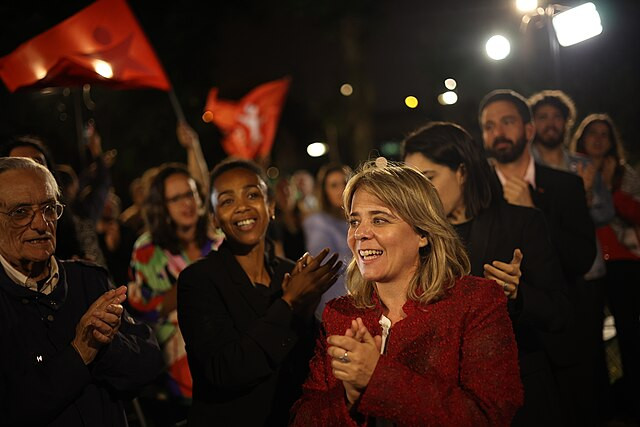Far-right parties have made substantial gains in the European Parliament elections, delivering humiliating defeats to French President Emmanuel Macron and German Chancellor Olaf Scholz. This electoral shift underscores a broader trend of rising nationalist sentiment across the continent, challenging the traditional political order and complicating the future direction of the European Union.
On a night that saw the 27-member bloc palpably move to the right, Italian Prime Minister Giorgia Meloni's party more than doubled its seats in the EU parliament. Despite scandals involving candidates, Germany's Alternative for Germany (AfD) rallied enough support to surpass Scholz's slumping Social Democrats, signaling a notable rightward shift.
Macron faced a particularly stinging rebuke, with Marine Le Pen's National Rally party dominating the French polls, securing over 30% of the vote, compared to Macron's pro-European centrist Renaissance party's less than 15%. In response, Macron dissolved the national parliament and called for new elections, a risky move that could further hobble his presidency. "We're ready to turn the country around, ready to defend the interests of the French, ready to put an end to mass immigration," Le Pen declared triumphantly.
In Germany, the AfD overcame a series of scandals to rise to 16.5% from 11% in 2019. The combined result for the three parties in the governing coalition barely topped 30%, with Scholz's Social Democrats falling behind the AfD. "After all the prophecies of doom, after the barrage of the last few weeks, we are the second strongest force," said a jubilant AfD leader Alice Weidel.
The election results represent a broader shift within the EU, where traditional centrist forces like the Christian Democrats and the Socialists, although still dominant, have lost ground. The gains made by the far right came at the expense of the Greens, who lost about 20 seats, and Macron's pro-business Renaissance group, which also saw significant losses.
The rise of far-right parties marks a departure from the post-World War II political consensus that kept such groups on the fringes. Their strong showing could influence EU policies on migration, security, and climate, areas where nationalist rhetoric has gained traction. To counterbalance the far right, EU Commission President Ursula von der Leyen has proposed building a coalition with the Social Democrats and pro-business Liberals. "We are by far the strongest party, We are the anchor of stability," von der Leyen stated, adding that stability and effectiveness are paramount for the EU's future.
Provisional results indicate that the Christian Democrats will have 189 seats, an increase of 13, while the Social Democrats will have 135 seats, down by four. The pro-business Renaissance group will have 83 seats, a reduction of 19, and the Greens will slump to 53 seats, down by 18.
The shift has been starkly evident in Germany, a traditional stronghold for environmentalists, where the Greens fell from 20% to 12%. This decline, along with further losses in France and elsewhere, could impact the EU's climate change policies, which are among the most progressive globally.
The electoral gains of the far right could complicate the legislative process within the EU, potentially leading to decision-making paralysis in the world's largest trading bloc. EU lawmakers, who serve five-year terms, have significant influence over financial regulations, climate and agricultural policies, the EU budget, and key appointments to the powerful EU Commission.
These elections come at a challenging time for the EU, which has been tested by the coronavirus pandemic, an economic slump, and an energy crisis exacerbated by Russia's invasion of Ukraine. The political landscape reflects a mix of national concerns and broader European issues, with populist and far-right parties now leading governments or being part of ruling coalitions in several EU countries.
Hungarian Prime Minister Viktor Orbán, a prominent far-right leader, encapsulated the prevailing sentiment among nationalist factions, stating, "Right is good. To go right is always good. Go right!"






